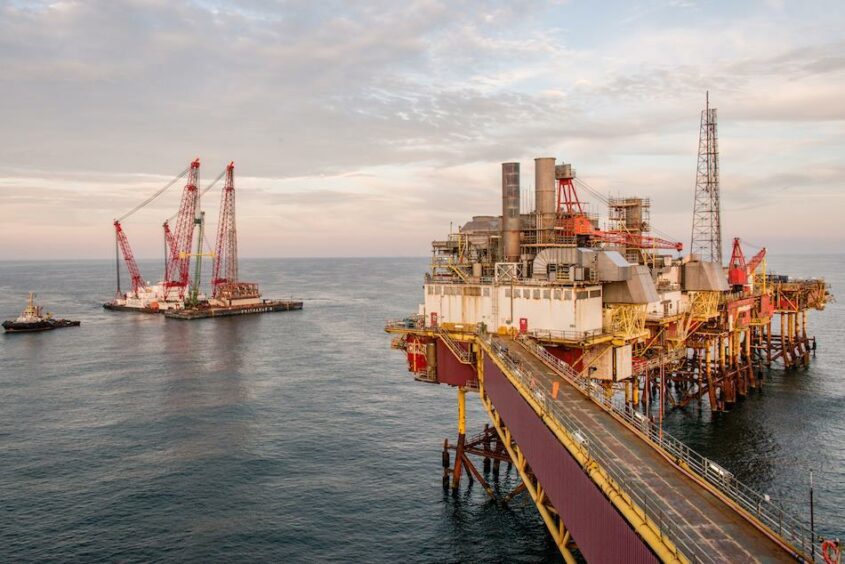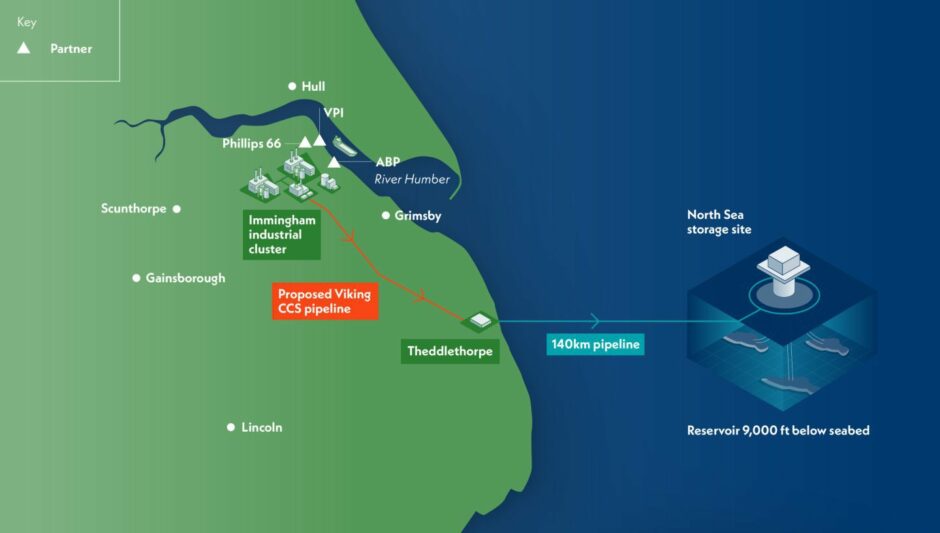
North Sea firms Harbour Energy (LON: HBR) and BP (LON: BP) have joined forces in order to progress the Viking CCS transportation and storage project.
Under the terms of the agreement, Harbour will continue as operator with a 60% stake in the scheme, previously named V Net Zero.
Meanwhile, supermajor BP has acquired a 40% non-operated share in Viking, in a deal that brings together two of the North Sea’s most experienced players.
Located close to the heavily industrialised Humber region, the projects has the potential to meet one third of the UK Government’s target to capture and store up to 30 million tonnes of CO2 a year by 2030.
BP and Harbour’s choice to team up follows Westminster’s recent decision to launch Track 2 of its CCS cluster sequencing process.
According to the developers, ministers have also recognised that Viking is one of two leading transport and storage system contenders for this process.
Aberdeenshire’s Acorn project, which also includes Harbour, is another one of the clusters hoping to secure government backing this time around.
Piles of cash
Viking has the potential to unlock up to £7 billion of investment across the full CO2 capture, transport, and storage value chain over the next decade.
During the construction phase of the project, over 10,000 jobs are expected to be created, proving an estimated £4bn of gross value add (GVA) to the Humber and surrounding areas.
Linda Cook, chief executive of Harbour, said: “We welcome the UK government’s recent announcement about the launch of Track 2 and the addition of bp as a partner to this transformational project. Viking CCS has the potential to unlock billions of pounds of investment across the full CCS value chain and is crucial for the UK to meet its emissions reduction targets.”
Partnered on LOGGS pipeline
Harbour and BP already share an interest in the Lincolnshire Offshore Gas Gathering System (LOGGS) pipeline, earmarked for repurposing as part of the project.
That will help to bring down the costs of hooking customers into the Viking storage fields, which recently had their 300 million tonnes of CO2 storage capacity independently verified.
There are also plans to use a new CO2 shipping terminal at Port of Immingham to bring in emissions from elsewhere in the UK and overseas.
Subject to the outcome of the Track 2 Cluster Sequencing Process, a final investment decision on Viking is expected in 2024.
If plans run to time, it could be operational as early as 2027 and potentially storing up to 10 million tonnes of CO2 per year by 2030.
Anja Dotzenrath, executive vice president of gas and low carbon energy at BP, said: “We’re extremely excited to be joining Viking CCS, a project which can play an instrumental role in helping to decarbonise the UK and providing CO2 transport and storage as a service to emitters across industry sectors and geographies, including as a future CO2 shipping destination.”
Louise Kingham, SVP Europe and head of country UK for BP, commented: “Our entry into Viking CCS demonstrates bp’s commitment to Backing Britain through substantial investment and helping the country achieve its net zero goals. Viking CCS could help create thousands of new local jobs and enable supply chains that support growth of CCS in the UK.”
Recommended for you


 © Supplied by Viking CCS
© Supplied by Viking CCS